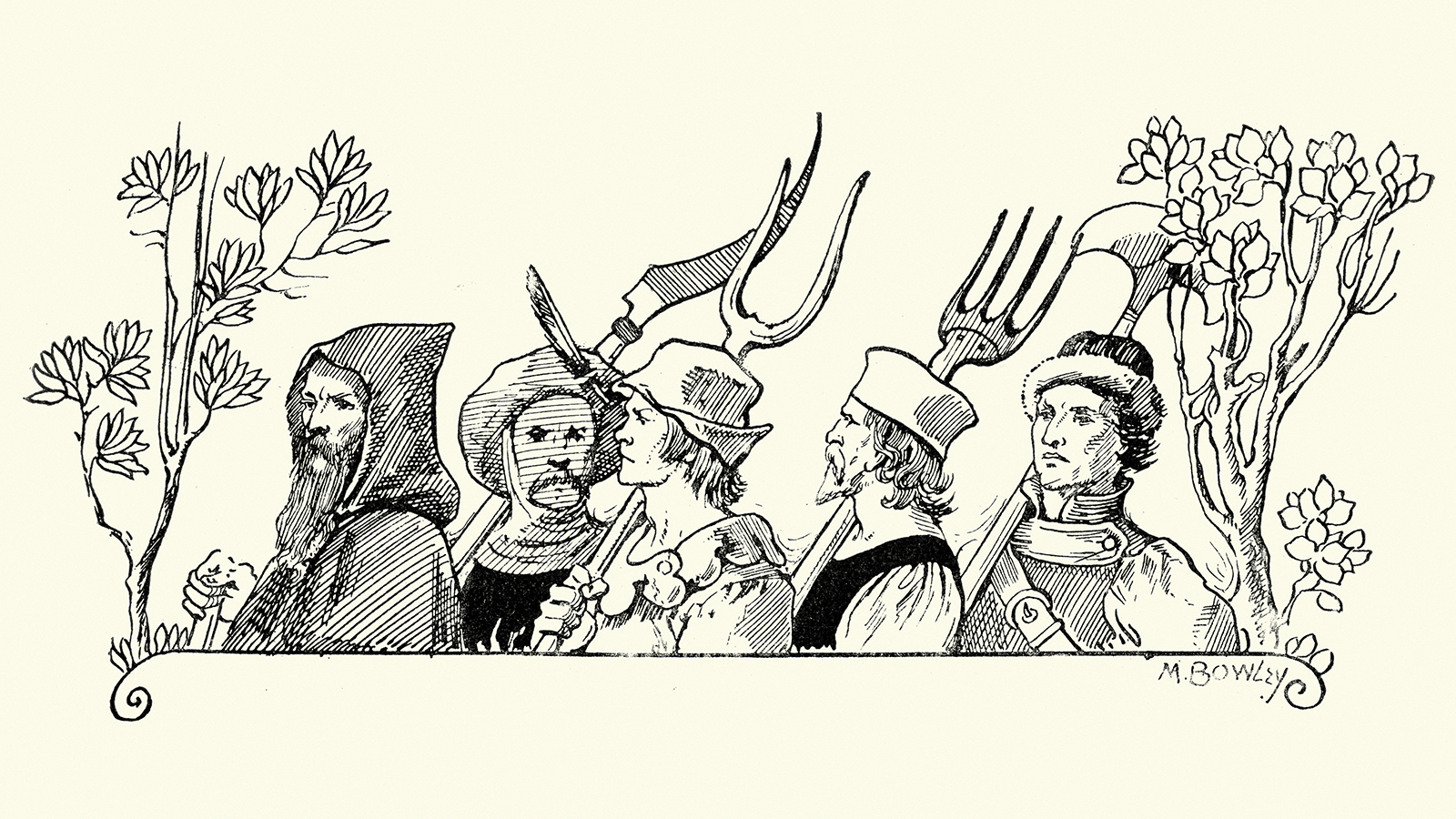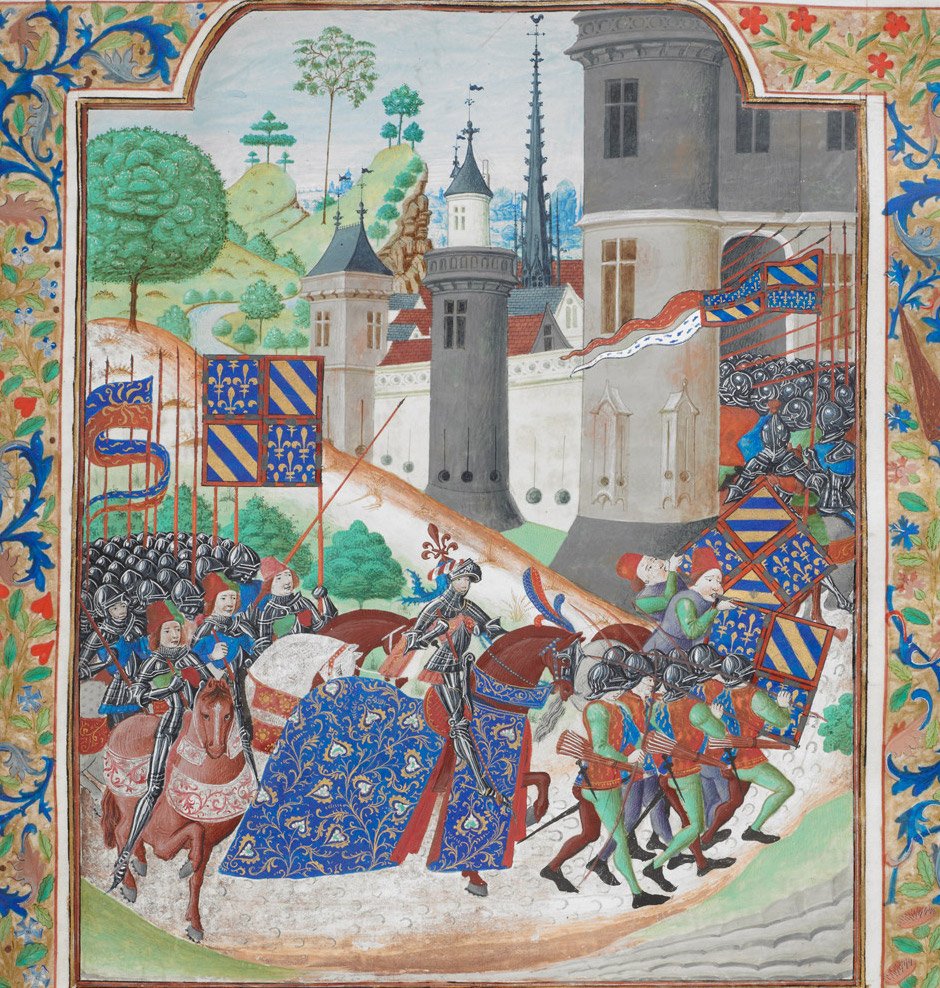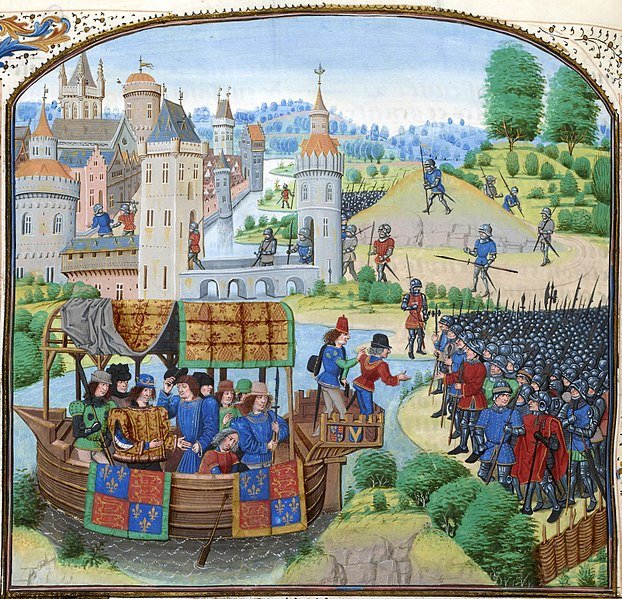
In the summer of 1381, working people in England were enraged, and for two months they made their voices heard by forming armed groups, marching on several towns and London, destroying the property of hated government officials, and burning tax records.
What can students learn from this historical uprising that occurred over six hundred years ago, and how can we connect the parallels to current events?
Uprisings Were Influenced by Many Different Factors
Public anger is complicated and is influenced by many different causes. The English Peasants’ Revolt of 1381 was caused by long-term inadequacies and immediate problems and frustrations. Many of the reasons for the revolt were economic. The Black Death (1347–51) killed a third or more of the previous generation, causing a shortage of workers. Wages should have increased. But between the plague and the rebellion, wages for workers were frozen at low levels by law. Furthermore, legislation tried to maintain serfdom, which restricted many rural workers from moving in search of better economic opportunity. Working people resented the wage freezes and government efforts to protect the interests of the wealthy at the expense of workers.
In 1377 and 1380, the English government started charging a new type of tax to pay for war with France. Traditionally, taxes had been placed on property, meaning the wealthy paid more than the poor. But the new taxes were poll taxes, meaning that every man and woman over the age of fifteen had to pay the same amount. Poor people were forced to pay just as much as the wealthiest, and many across England refused to pay. In response, the government sent out special agents to locate tax evaders and force them to pay. Incidents of aggressive actions by these agents occurred, and rumors spread, magnifying the injustice, much like viral social media posts today.
The Peasants’ Revolt may have also been inspired by hopes for equality and religious reform. John Ball was a renegade preacher who had been imprisoned for attacking the authority of the Catholic Church. He was released from prison by the rebels as they marched toward London. In a famous sermon to the rebels, he promoted equality between the rich and poor, justifying it in a biblical context.

Uprisings Aren’t Just about Leaders—They Require Many Unnamed Supporters
History remembers the names of leaders, but rebellions require myriad support. Wat Tyler is the leader associated with the English Peasants’ Revolt of 1381, and the names of the other hundreds of supporters are unknown. Peasants and rural farm workers were prominent, but the rebels also included people from across the social hierarchy, including modern-day “middle-class” farmers and townspeople. When the groups of rebels approached the towns of Canterbury and London, the citizens of the towns helped the movement by opening their gates to the rebels, out of support or fear.
Both Sides Were Violent, but Historical Records Depict the Lower Classes as the Worst
Violence was common in historical rebellions on both sides. Medieval accounts can rarely be depended upon for exact numbers, but we know people on both sides and probably some innocent bystanders died. The rebels looted and destroyed the houses and tax records of government officials and killed, sometimes beheading, officials perceived as the most corrupt. On the other hand, while the rebel leader, Wat Tyler, was negotiating with King Richard II, he was killed by a follower of the king because he was insolent to the king. After the rebellion, at least two hundred rebel leaders were tried and executed. In surviving accounts, the losing side is usually portrayed as unreasonable or the irrational aggressor.

Change Happened, but Slowly
In 1381, the peasants’ efforts to change England failed. In the negotiations with the English king, the rebels demanded radical reforms: abolition of serfdom and the feudal system, a local system of self-government, and the confiscation and redistribution of church property to average people. None of these demands was implemented by the English government immediately after the Peasants’ Revolt. But these changes did occur in the following centuries. Did the uprising of angry workers in 1381 speed up this decline? Maybe. The poll tax was abandoned, and over the next two hundred years, serfdom and the feudal system gradually declined through practice and legislation. The property of the Catholic Church in England was confiscated by King Henry VIII in the sixteenth century, two hundred years later, for very different reasons, and it was not redistributed to working people.
In Conclusion
In the English Peasants’ Revolt of 1381, the causes were complex, the supporters were varied, the actions on both sides were violent, and reform did finally occur, though changes were slow. In our modern times, protestors from all walks of life continue to demand change based on complex chains of long-term and immediate problems. While overall violence has declined over the centuries, it still occurs, and change often comes at a pace far too slow for those marching for reform.
To inspire your students to think critically about protests and historical uprisings, consider these essential questions:
- Did the Peasants’ Revolt have any effect on society?
- If you were Wat Tyler, would you approach your demands differently?
- Were the peasants really revolting; was it just a mob, or was it a more organized rebellion?
- How do current events compare to the Peasants’ Revolt? How are they different?
- Are there other events throughout history that this historical uprising echoes?
Seeking more curriculum and activity resources?
Try a free 30-day trial of Active Classroom
Cynthia W. Resor is a social studies education professor and former middle and high school social studies teacher. Her dream job? Time-travel tour guide. But until she discovers the secret of time travel, she writes about the past in her blog, Primary Source Bazaar. Her three books on teaching social history themes feature essential questions and primary sources: Discovering Quacks, Utopias, and Cemeteries: Modern Lessons from Historical Themes; Investigating Family, Food, and Housing Themes in Social Studies and Exploring Vacation and Etiquette Themes in Social Studies.
It has been of great help to raise students´s awareness on social uprisings. Thanks a lot!